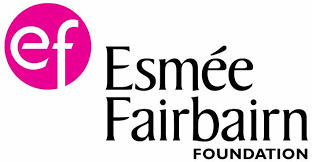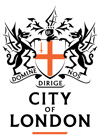In 2017, we joined a radical UK-wide project highlighting the extraordinary contribution neurodiverse people make to art and culture. The EXPLORERS Project is informed and led by neurodiverse communities, and at Autograph it’s resulted in exhibitions, events, the creation of our Family SEND Workshops, and more. It has changed us and our programming, for the better.
Our Learning and Participation Team had already been working on a rights-based framework for Autograph’s arts engagement work. This approach makes the legal, civic, and human rights of participants the starting point for consultation and project design, in order to create more ethical forms of participatory projects - and help initiate systemic change. The EXPLORERS Project offered us a strategic opportunity to build on this framework; we wanted to become more inclusive for families with children with SEND (Special Educational Needs and Disability, a term often used in education).
The families we spoke to often felt excluded from both gallery spaces and the family activities on offer, and wanted activities designed for children with SEND in mind. We learned there was an experience gap between events in cultural spaces labelled as inclusive, and the reality families often found on arrival. These families wanted safe, fun and welcoming activities their entire family could enjoy: an opportunity for siblings with and without disabilities or complex support needs to creatively express themselves.
We listened. Autograph worked with artist-educator Katriona Beales to develop a new, monthly workshop programme. Informed by ideas of child-led creative play, activities full of sensory experimentation were developed for families. Staff were trained to ensure the experience was accessible and welcoming for everyone. Encouraged when the first workshop was fully booked, we watched the programme grow over the next 12 months. Parents generously shared ideas with us about how an arts organisation can be meaningfully inclusive for children with SEND, and explained just how important the opportunity for playful creativity was for their children. We, in turn, shared some of this learning and the rich experiences from the programme in a pop-up exhibition, which opened just before Covid-19.
In mid-March, Autograph made the difficult decision to temporarily suspend the workshops due to the pandemic. We knew that putting these on hold meant far more than just the loss of a monthly activity; the sessions at our gallery had become an opportunity for families to connect with one another too. With many specialist support services shutting down, we recognised they would feel the impact of Coronavirus acutely. How could Autograph continue to support them, from afar?
The solution soon became clear: introduce a postal service. We commissioned Katriona to reimagine the workshop activities as a vibrant art kit that could be mailed to families. The art activities were adapted with an emphasis on fun, self-care, well-being and positive mental health - doing what we could to help reduce the anxiety, isolation and boredom of lockdown. Bursting with art supplies and hand-drawn worksheets, our Family SEND Art Kits were posted free of charge to 20 of the families who regularly joined us at the gallery workshops.
The response has been overwhelmingly positive and full of excitement as families send us their snaps of the Art Kit in action. See for yourself below.
Our Family SEND Art Kit worksheets are for all families, download them here.
Can you spare a few moments? Autograph is carrying out a survey to better understand who our digital audiences are. The survey should take no longer than five minutes to complete. Anything you tell us will be kept confidential, is anonymous and will only be used for research purposes.
The information you provide will be held by Autograph and The Audience Agency, who are running the survey on our behalf. In compliance with GDPR, your data will be stored securely and will only be used for the purposes it was given.
You can take the survey here. Thank you!



Autograph is a space to see things differently. Since 1988, we have championed photography that explores issues of race, identity, representation, human rights and social justice, sharing how photographs reflect lived experiences and shape our understanding of ourselves and others.